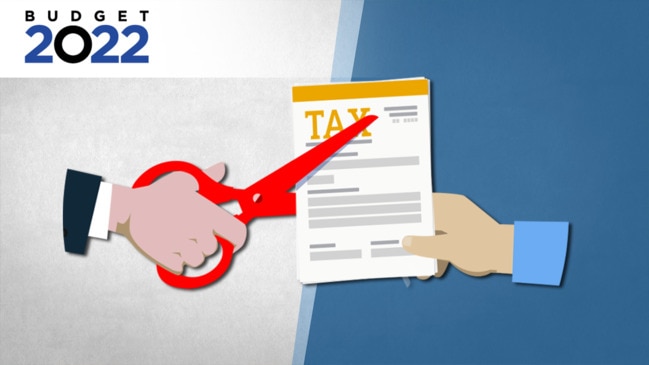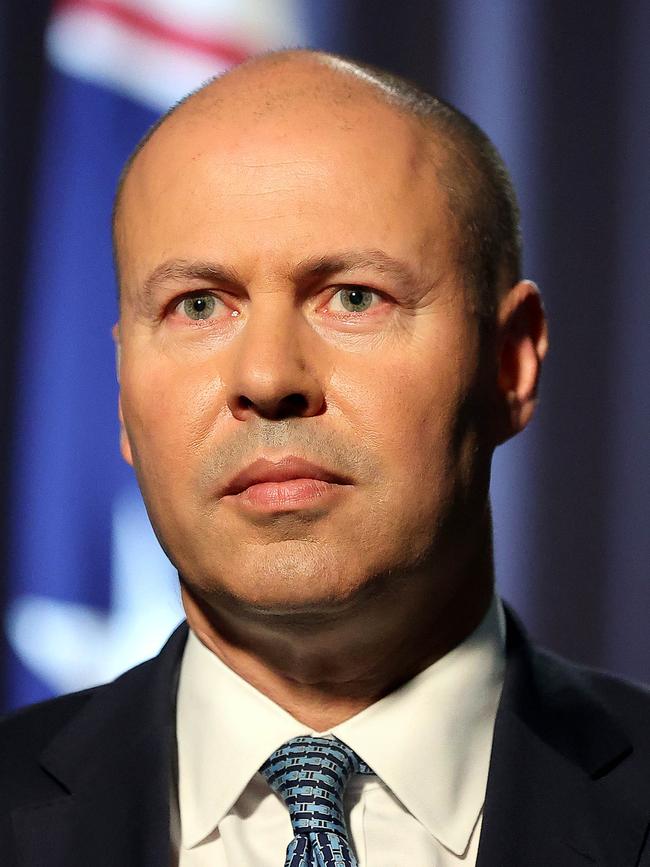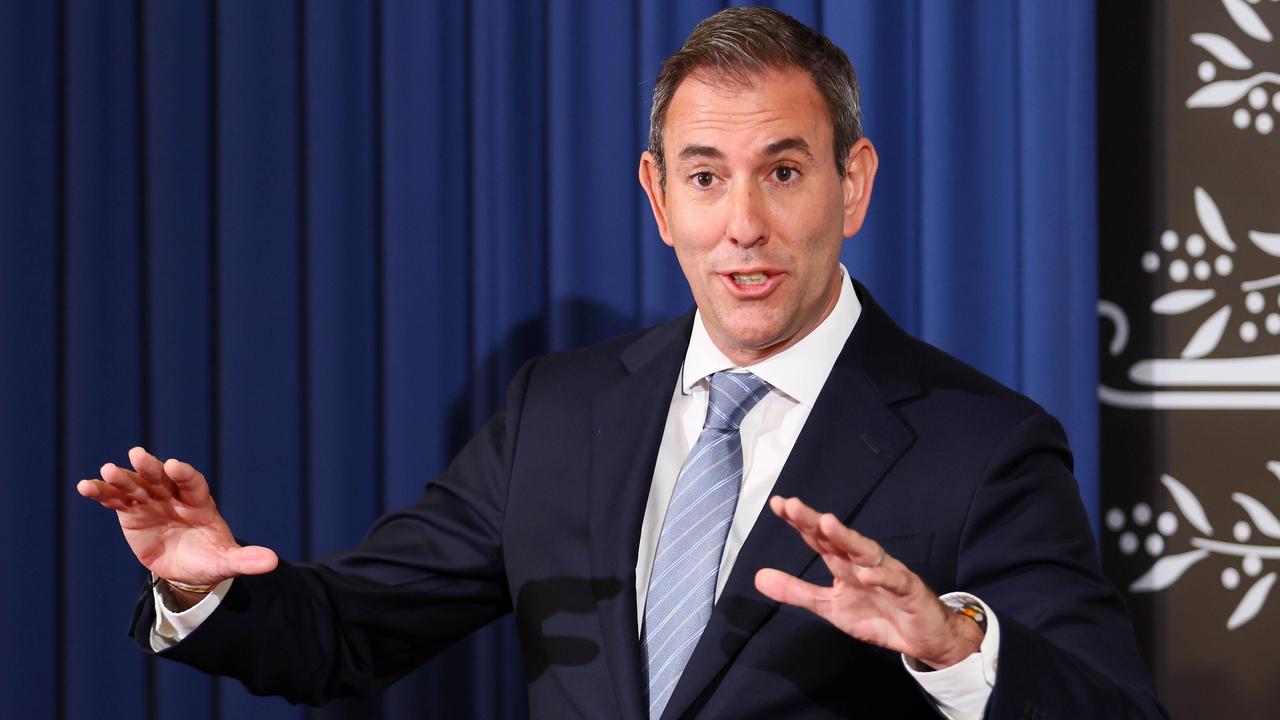Federal Budget 2022: Surprising reaction to federal budget
A poll on Australians’ confidence in the federal budget has delivered some telling results leading up to the election.

Federal Budget
Don't miss out on the headlines from Federal Budget. Followed categories will be added to My News.
The federal budget will do good for Australians’ personal coffers but not necessarily for the economy, voters say.
According to a Newspoll for The Australian, 26 per cent of all voters said they would be financially better off compared to 25 per cent saying they would be worse off.
But confidence in the budget for the economy was down, with 33 per cent saying Treasurer Josh Frydenberg’s fourth budget would be good compared to 23 per cent saying it would be bad. This was the lowest level of support on this question of any budget since 1999.
Tellingly when asked if Labor would deliver a better budget, 40 per cent of voters said yes compared to 42 per cent that said no. That’s the strongest support for Labor in opposition since budget questions were asked in a Newspoll in 1999, The Australian reports.

Australia’s monster national debt pile will continue growing for at least another decade but the recovery is coming sooner than previously forecast.
An improving economy will dramatically reduce annual budget deficits, although taxpayers will soon be paying twice as much interest on government debt compared with a decade ago.
Mr Frydenberg said net debt as a share of the economy would peak at 33.1 per cent in June 2026, and the budget would be repaired without increasing taxes.
“The deficit for 2022-23 is expected to be $78 billion or 3.4 per cent of GDP – over the next three years, this will more than halve to 1.6 per cent,” Mr Frydenberg said last week.
However, the budget papers forecast annual interest payments on the debt to rise from $15.1b in 2022-23 to $22.4b by 2025-26. That’s up from $8.3b in 2012-13.
AMP chief economist Shane Oliver said there had been a “progressive improvement” in Australia’s debt position in the past few budgets.
“It’s still humungous, with deficits as far as the eye can see, and we are still looking at gross debt heading towards $1 trillion,” he said.
“But it’s not likely to go significantly beyond that, whereas previous expectations were a lot worse.”
Gross debt is forecast to eclipse $1 trillion in 2023-24 and hit $1.17 trillion in 2025-26, with net debt at $864.7b.
Dr Oliver said rising interest costs would swallow a greater proportion of government spending.
“In 2020 the federal government could borrow for 10 years at 0.6 per cent per annum – today that 10-year bond yield is 2.8 per cent, so deficits will be funded at much greater rates of interest,” he said.
Inflation impacts interest rates, and the budget says Australia’s annual consumer price inflation rate will moderate from 4.25 per cent in the current financial year to 3 per cent in 2022-23.
It says the fuel excise reduction should reduce inflation by one quarter of a percentage point “before being withdrawn in late 2022 as oil prices are expected to moderate”.


The budget papers also highlight the financial benefits of a strong recovery in the labour market. Two years ago the budget forecast unemployment above 6 per cent in 2022-23, but this budget says it will drop below 4 per cent.
CommSec chief economist Craig James said the government appeared committed to stabilising then reducing debt as a proportion of the economy.
“We are in a better position than we thought we would be in a couple of years ago when the pandemic hit,” he said.
“Revenues have been propped up by the fact more people stayed in jobs and more businesses stayed in business.”
However, “debt takes dollars out of the economy” and the money spent on interest payments was money that could not be allocated elsewhere, Mr James said.
“It’s more and more accepted that it’s not the size of the debt but the debt servicing cost,” he said.
Servicing Australia’s debt was still “quite easy because interest rates are so low and we have a lower level of debt than many parts of the globe”.
FUTURE DEBT FOR BABIES
Babies Sierra Garuccio and Gigi Manzueto are blissfully unaware the country’s “humungous” debt will not be paid off in their lifetime.
Gross debt is forecast to eclipse $1t in 2023-24 and hit $1.17t in 2025-26, with net debt at $864.7b.

Their mothers Danielle Garuccio and Selina Manzueto — who have been best friends since high school — were stunned by the figures.
“It’s a little bit concerning,” Mrs Garuccio said.
“You want your children to have the best and be comfortable when they grow up.”
The mother’s hope this year’s budget includes measures to reduce the stress on the hip pocket for all Australians, particularly surrounding record-high petrol prices and the ability to buy into the property market in years to come.
“It is already hard to get into the housing market, so I feel that in 20 years from now – when our kids want to get in – it might be impossible,” Mrs Manzueto said.
“That’s the biggest concern I have for my daughter.”
However, until Sierra and Gigi are old enough to understand the country’s finances, the infants will go about their day.
“They’ll just l keep playing with their toys together … they are adorable together,” Mrs Garuccio said.
— with Celeste Villani and Riley Walter




